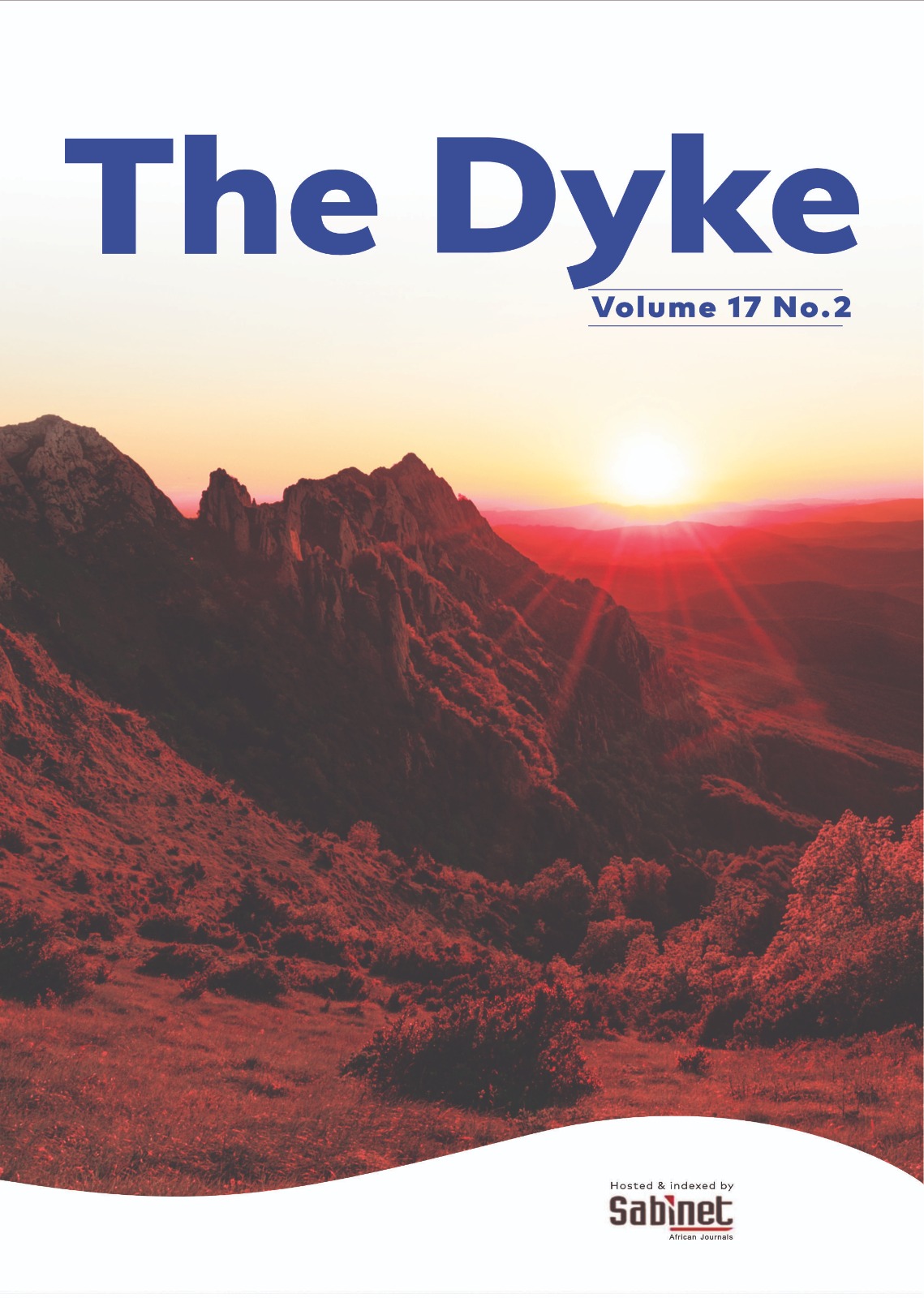Blended teaching and learning in Higher education institutions: Experiences of selected Universities in Zimbabwe.
DOI:
https://doi.org/10.64754/thedyke.v17i2.311Keywords:
Blended, learning, teaching, Higher Education, Experiences, ZimbabweAbstract
Higher education is experiencing phenomenal changes due to the advancement and use of information communication technology (ICT). Blended teaching and learning are an outcome of an advanced technology-based learning system. The traction of the blended teaching, and learning approach lies in the adaptation of technology-aided learning methods in addition to the existing traditional-based learning. Blended teaching and learning combine face-to-face and online delivery methods that influence students' perceptions of the learning environment and their study experiences, learning outcomes, and ultimately, academic achievement. The study’s objective was to explore the experiences of lecturers and students regarding blended teaching, and learning, in higher education institutions in Zimbabwe. A qualitative study was conducted using in-depth interviews with lecturers and Focus Group Discussions (FGDs) with students from selected universities. The study employed snowball sampling to select respondents from lecturers and convenience sampling to select respondents from students. Both In-depth interviews and FGDs were conducted online through WhatsApp, telephone, and Zoom platforms. The study included five public universities in Zimbabwe. The data was analysed using thematic analysis and Nvivo Version 11 software. Findings revealed that poor technology infrastructure including poor internet connectivity, unavailability of computers, and poor technical skills to execute interactive online teaching as the major challenges facing lecturers. The study further noted that students continue to face challenges in accessing personal computers to facilitate blended learning. Despite these barriers, blended learning and teaching are the future of higher education hence the need to ensure that universities have sufficient resources to support the transition. The study recommends the need to align blended teaching and learning with overall institutional goals and priorities.
References
Gwaka, L. T. 2018. Digital technologies and youth mobility in rural Zimbabwe. The Journal of Information Systems in Developing Countries, 84(3), e12025.
Kangai, C. and Bukaliya, R. 2011. Teacher development through open and distance learning: The case for Zimbabwe. International Journal on New Trends in Education and their Implications, 2(4):124-141.
Mpofu, V., Samukange, T., Kusure, L. M., Zinyandu, T. M., Denhere, C., Huggins, N., Sithole, F. 2012. Challenges of virtual and open distance science teacher-education in Zimbabwe. International Review of Research in Open and Distributed Learning, 13(1), 207-219.
Makokha, G. and Mutisya, D. 2016. Status of e-Learning in public universities in Kenya. International Review of Research in Open and Distributed Learning, 17 (3), 341–359. https://doi.org/10.19173/irrodl.
Muderedzwa, M. and Chilumani, K. 2017. The adoption of Google Classroom at the Catholic University of Zimbabwe. The Fountain: Journal of Interdisciplinary Studies, 1(1): 133-147.
Mupfiga, M., Mupfiga, P., and Zhou, T. G. 2017. Enhancing teaching and learning through the use of mobile technologies in Zimbabwean University. Journal of Systems Integration, 2, 49-50.
Muwaniki, C., McGrath, S., Manzeke-Kangara, M. G., Wedekind, V. and Chamboko, T. 2022. Curriculum reform in agricultural vocational education and training in Zimbabwe: Implementation challenges and possibilities. Journal of Vocational, Adult and Continuing Education and Training, 5(1): 94-115.
Muzira, D. R. and Bondai, B. M. 2020. Perception of educators towards the adoption of education 5.0: A case of a state university in Zimbabwe. East African Journal of education and social sciences, 1(2), 43-53.
Sosibo, Z. L. 2021. Inequalities and marginalisation during Covid-19 lockdown: Psycho-social effects on underprivileged university students. Creating Effective Teaching and Learning Spaces: Shaping Futures and Envisioning Unity in Diversity and Transformation, 73.
Tafangombe, J. and Kaputa, T. M. 2015. An analysis of challenges encountered by students on the e-learning platform at Zimbabwe Open University. Greener Journal of Social Sciences, 5(3):051-064.
Togo, M. and Gandidzanwa, C. P. 2021. The role of Education 5.0 in accelerating the implementation of SDGs and challenges encountered at the University of Zimbabwe. International Journal of Sustainability on Higher Education, 22(7), 1520-1535.
Tshili, N. 2022. Education 5.0 underpins socio-economic development. The Chronicles, December 2022.
Tirivangana, A. M. 2019. Education 5.0 and Vision 2030: Reconfiguring Zim University Degrees. The Patriot. Available online at:https://www.thepatriot.co.zw/education/education-5-0-and-vision-2030-reconfiguringzim-university-degrees / [Accessed May 4, 2023].
Richard, B. and Dzimano, P.R. 2011. Analysing Lecturers Web/Internet Competence at the Zimbabwe Open University, International Journal of Social Sciences and Education 1(4): 223-332.
Walimbwa, M. 2008. Integrating e-learning in teaching and research in upcoming East African Regional Universities. Paper presented at the meeting CNIE Banff, Alberta, Canada. Retrieved from http://www.slideshare.net/Walimbwa/elearning-in-east-african-universities.

Downloads
Published
How to Cite
Issue
Section
License
All articles in The Dyke are published under the Creative Commons Attribution 4.0 International License (CC BY 4.0).
Under this licence:
- Others may copy, redistribute, remix, transform, and build upon the work for any purpose, even commercially.
- Appropriate credit must be given to the original author(s) and source (The Dyke), along with a link to the license.
- Any changes made must be indicated.
Full licence details: https://creativecommons.org/licenses/by/4.0/
Archiving and Preservation
The Dyke supports long-term preservation of scholarly work through partnerships with digital repositories and indexing services, including Sabinet African Journals. Authors are also encouraged to deposit a copy of their published article in institutional or subject-specific repositories.




